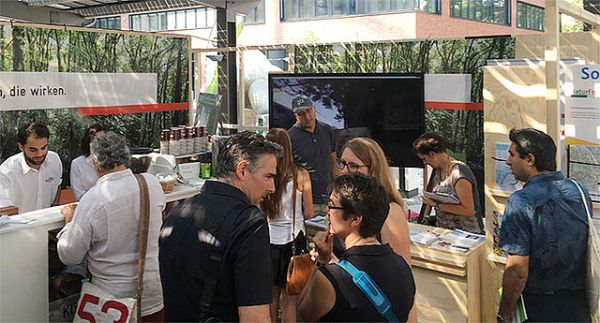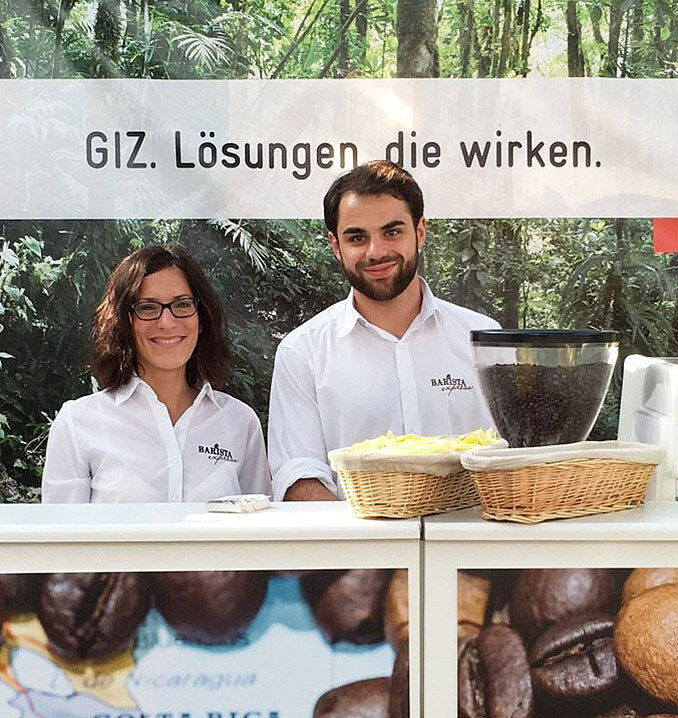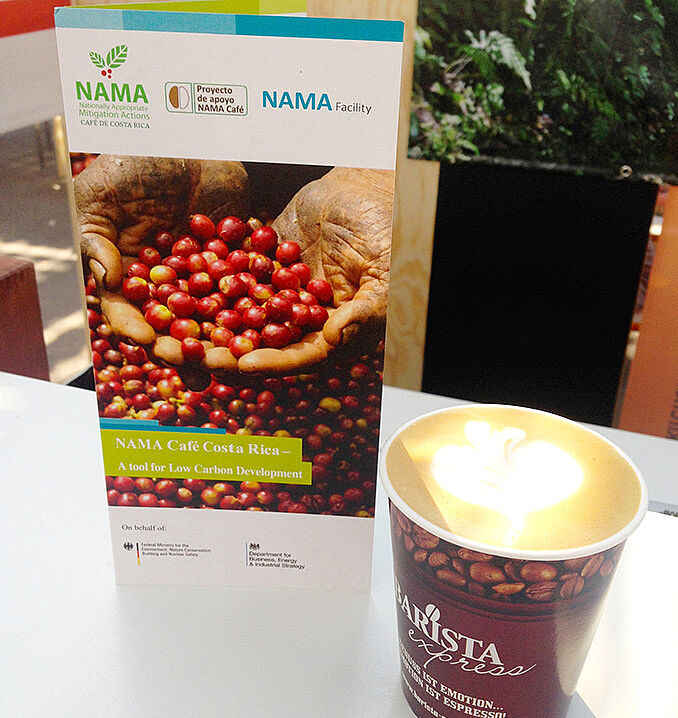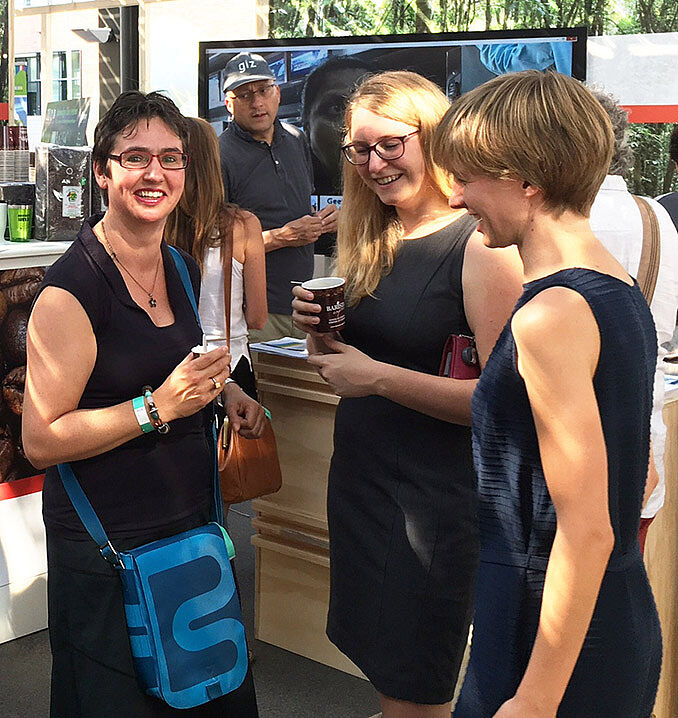News from the NAMA Support Projects: Costa Rican climate-friendly coffee served at BMUB’s 30th anniversary

On September 10th and 11th 2016 in Berlin, the “Umweltpolitik 3.0 – Das Festival der Zukunft” (Environmental policy 3.0 – the festival of the future) festival took place, celebrating the 30th anniversary of the German Federal Ministry for the Environment, Nature Conservation, Building and Nuclear Safety (BMUB). The Deutsche Gesellschaft für Internationale Zusammenarbeit (GIZ) GmbH seized the opportunity and presented its work on the topics of environment and climate – among them the latest milestones and current work-in-progress of the NAMA Support Project “Low-Emission Coffee Costa Rica”. A sample of genuine Costa Rican coffee awaited visitors at the GIZ “Klima Café”.
Costa Rica is known around the world for its premium coffee – and last weekend visitors of the festivities marking the BMUB’s 30th anniversary in Berlin could put this to the test. Espresso, Cappuccino or plain black coffee – visitors enjoyed the Costa Rican coffee in all its varieties. Hand-picked in the region of Los Santos in Costa Rica’s Central South, this particular coffee is characterized by being of premium quality.
Additionally, GIZ employees informed about the current tasks and projects implemented in the NAMA Support Project “Low-Emission Costa Rica”. In order to make coffee cultivation in Costa Rica more climate-friendly and thus more sustainable, GIZ is supporting the country on behalf of the NAMA Facility, a fund jointly set up by BMUB and the British Department for Business, Energy & Industrial Strategy (formerly DECC). The Danish Ministry of Energy, Utilities and Climate (EFKM) and the European Commission joined the NAMA Facility as new Donors in 2015. The project supports Costa Rica in realizing its climate targets through advisory services, investment finance and technology transfer, by helping 6,000 Costa Rican coffee farmers and employees in around 50 coffee processing plants to introduce and apply climate-friendly cultivation and processing methods. In addition, promoting efficient technologies and their financing plays an important role.
Although the project has only been running since January 2016, it is already achieving initial results: in the first eight months, the project trained 480 people in 40 coffee mills on climate-friendly production and cultivation measures. Two of these are selling climate-friendly coffee. Additionally, the project concluded long-term contracts for high-quality coffee at stable prices with Japan and South Korea.
Learn more about the project on the website.



